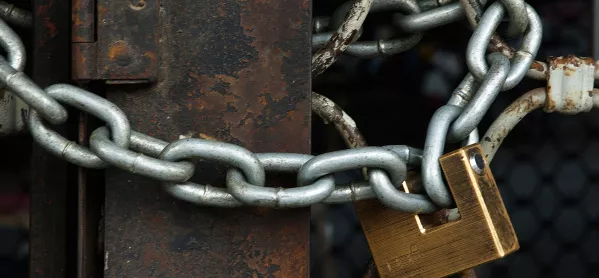Schools could close after the summer holiday depending on the result of a ballot of public sector workers, which opens today.
Some 25,000 Unison members in schools, nurseries, and waste and recycling centres are being asked to back industrial action. The ballot will close on 26 July.
The ballot comes in the same week as EIS teaching union members in Dundee moved to strike on 22 June over school faculty structures, while Western Isles teachers have backed industrial action over remote-learning plans. An EIS ballot on strike action could also be held if the policy to reduce teachers’ weekly class-contact time by 90 minutes is not introduced early enough.
Johanna Baxter, Unison’s head of local government in Scotland, said a proposed 2 per cent deal amounted to a real-terms pay cut and came “on the back of the Scottish government announcing cuts to public services that Margaret Thatcher would be proud of”.
The union, which represents thousands of support staff in Scottish schools, said it had urged first minister Nicola Sturgeon and finance secretary Kate Forbes to meet them to discuss funding for local authorities to improve the pay offer, but their request was turned down.
Ms Baxter said: “The fact they will not sit down with [local authorities’ body] Cosla and the trade unions to try and find a solution is a kick in the teeth to all local government workers.
“They have forgotten already who was educating our children, cleaning our communities, caring for our vulnerable and burying our dead throughout the pandemic. Local government workers keep society running.”
Unison wrote to the Scottish government on 1 June but on Thursday Ms Forbes told it, Unite and GMB that, while her government worked “hard to maintain good relations”, it “would not be appropriate to interfere in these negotiations, given their devolved nature” and was down to the union to negotiate with Cosla.
“As such, I have respectfully declined the tripartite meeting being proposed by Cosla. The Scottish government has never had a seat in the local government pay negotiations,” Ms Forbes told them.
A Cosla spokesperson said: “Cosla values the essential roles that all local government workers carry out on a daily basis.
“We remain in active discussions with our trade union partners.”
A Scottish government spokesperson said it was “not involved in local government pay negotiations”.
“Pay settlements for council workers - excluding teachers - are a matter for Cosla and are determined through negotiations at the Scottish Joint Committee (SJC),” the spokesperson said.
“As it is not a member of the SJC, the Scottish government cannot intervene in pay negotiations, which are for the trade unions to negotiate with Cosla.
“Council staff play a crucial role in our communities as we rebuild the economy following the pandemic. We would encourage the parties to maintain dialogue and stay at the table to reach agreement.”




